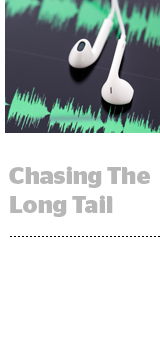
The podcast industry is in flux, with more content moving behind paywalls and under big streaming platforms.
Podcast hosting and analytics platform Acast wants to keep podcasts accessible across all listening apps. To do that, it’s acquired Pippa, another podcast hosting and analytics platform that works with independent creators, the company said Thursday. Terms of the deal were not disclosed.
Pippa, which makes it simple for anyone to record and distribute a podcast, will round out Acast’s offer for enterprise publishers, said Oskar Serrander, chief commercial officer at Acast. Today, Acast only works with premium publishers that meet a specific audience threshold, including BBC, Financial Times, The Economist and HuffPost.
“We can open up our tech and global marketplace to creators and DIY podcasters,” Serrander said. “Being able to swipe your credit card and be a podcaster within minutes is the biggest complement to our service.”
Acast, launched in 2014, offers dynamic insertion capabilities and a podcast programmatic marketplace. Buyers can use demographic, geographic and contextual data to inform their ad purchases across a range of shows and audiences – rather than simply buying directly, which is how most podcast ads are bought today. Acast also helps brands and publishers aggregate analytics across a fragmented distribution landscape where data isn’t always easily accessible.
“We can match the data we get from these multiple sources and serve that back to publishers to give them a sense of how people are engaging with their content,” Serrander said.
Pippa resembles Anchor, the podcast distribution platform for independent creators that Spotify acquired in February. But Serrander said they’re different because Pippa also allows podcasters to “grow an audio business and manage your content a bit more neatly.”
Pippa will still distribute its podcasts to all major listening apps to keep in line with Acast’s open ecosystem philosophy.
“We are pairing [Pippa] with our complete independence from consumer apps,” he said. “I think podcasters are really looking for that. They don’t want to be tied into any walled garden.”
But as Acast adds more independent creators to its platform, it will have to be wary of brand safety issues that crop up when broadening beyond premium publishers. The platform already has a set of content filters baked in, which it will expand on post-acquisition.
“This is part of building a marketplace with thousands and thousands of advertisers,” Serrander said. “These are the technology solutions we need in place to make the marketplace work.”
Pippa’s four employees will join Acast’s team. The integration between platforms hasn’t started yet and will take several months.
“There’s always a little duplication,” Serrander said.
This post was syndicated from Ad Exchanger.


More Stories
By the Book: How ‘The Fugitive’ Director and an Investigative Journalist Collaborated on 2024’s Timeliest Thriller
The Best Holiday Ads of 2024
The Year in Ratings: How the Major News Outlets Performed in 2024